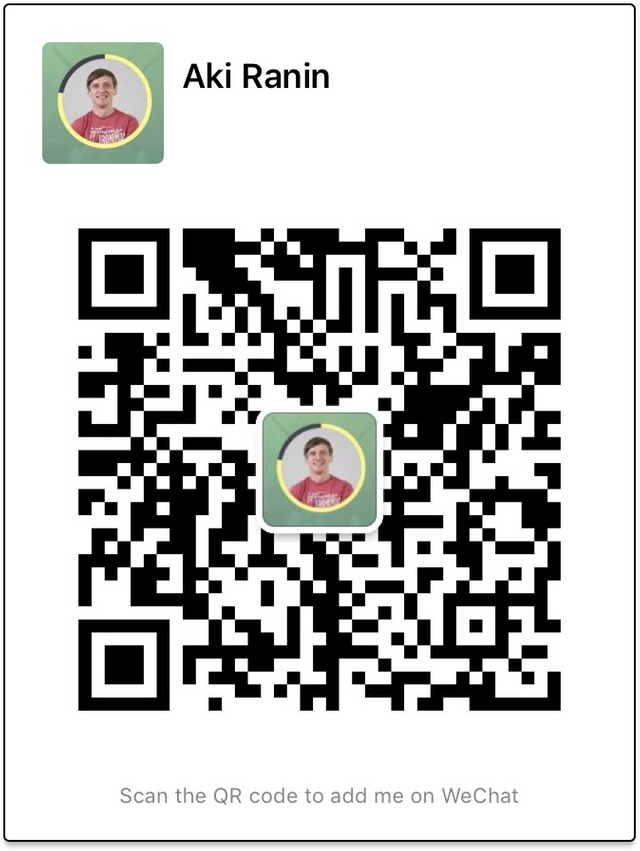Last week, I experienced 4 cities in 5 days across China as part of the Global Fintech Summit. I was invited by InTeahouse Inc., an innovation bridge between the East (China) and West (USA, Canada, EU) set up by serial entrepreneur and overall wonder woman Liu Xin. This is my experience and analysis of what I found. Summary: This ain't Kansas anymore, Toto.
China has gone from rickshaws and the little red book to Mobikes and WeChat in less than three decades.
I had only been to mainland China twice before, giving me a rather striking glimpse of its inhuman leaps in progress: Beijing in 1988, then Shanghai in 2007. Those experiences are about as far apart as going from an archeological dig site to a virtual-reality rave party. In 1988 the roads of Beijing were filled with bicycles, without a single car in sight. Most people wore uniforms. Fast-forward to 2007, and I traveled to downtown Shanghai at 400 km/h on a train floating in the air on superconducting magnets.
Seriously, that was 10 years ago!
The plan
The summit itself was the most ambitious such program of InTeahouse to date. Bringing together dozens of innovators and thinkers from around the planet together with Chinese counterparts across four cities in five days. So why don't we start with the people who made this happen? It's thanks to them that you'll be able to enjoy this rather fruity piece of content.
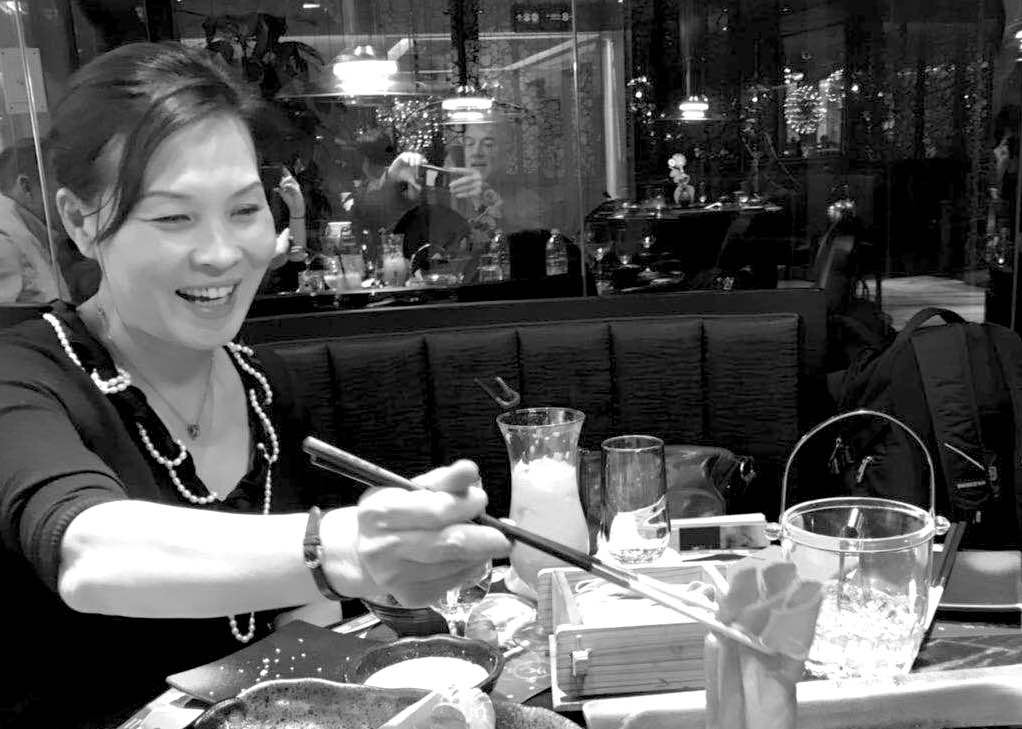
The team - InTeahouse
Xin Liu CEO: Without any doubt in my mind, Xin is one of the most charismatic people I've come across in my years. Extremely rarely, maybe even never, you'll meet someone who can relate and immediately engage with anyone, instantaneously. I literally mean anyone. Politicians. Nobel laureates. Tech geeks. Bus drivers. People like Xin have an incredible gift to make you feel special, even in mundane everyday conversations. In such a presence everything just seems better. Meeting Xin pretty much explains everything about not only her measurable past and inevitable future success, but the unique access to leaders we were exposed to. The word super-connector isn't used lightly.
Kristina Vulgan COO - Kris runs the company's global operations out of San Francisco's glitzy waterfront, but stood with us startups in the trenches all the way. The midnight flights. The dawn rooster calls. Kris gave us access to the conference delegates pulling strings with the local teams, which could lead to potential breakthroughs through investment or partnerships. I humbly present the holy fist-bump of founders on all our behalf.
Doris - Chief Cat Herder for most of the trip, Doris listened to the innumerable woes and worries of our fearless founders. In one shiny silk package, you get a heart of gold and the fierce bite of a tiger - this is the stuff China is made of.
Doris, I think there's a pea under my mattress. Can someone come check so I don't have to get up?
Rachel - Aside from accidentally booking us for a night in an "hourly" hotel with condoms on the in-room dining menu, much to the amusement of our Silicon Valley princesses, Rachel took good care of us. Sorry Rachel, what happens in China stays in WeChat!
Martin - Also known as "male model number two", as we referred to him before learning his name, Martin ran the show in Beijing with a combo of swag and pinstripes that tells us a lot about millennials in China. World, watch out.
The stars of the show
Make no mistake, nothing will make you feel more honored yet more humbled as a founder than going on stage after a Nobel laureate. Yes, that happened. These are the "other guys" that tagged along with us startups.
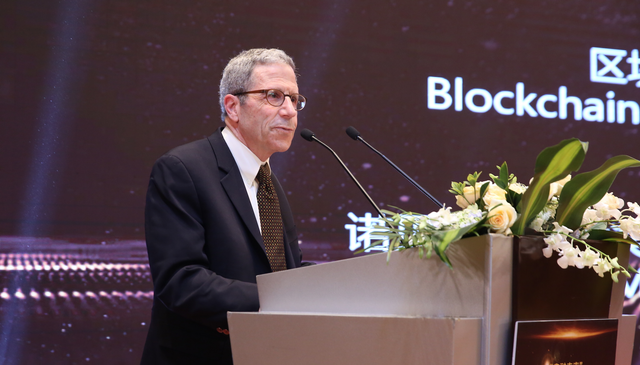
- Eric: On last day of our summit, I found myself alone in a hotel elevator with a Nobel prize winning economist. I thought to myself, you have one question before we reach the ninth floor, don't waste it. So I asked him about jet lag. Facepalm. Well, as luck would have it I got to sit next to him over a full Peking-duck dinner. I asked him casual questions like what's it like working in Einsteins's old digs at the Institute of Advanced Studies, and why he left a lifetime appointment. And casual dinner chat like: "what is the future of the world, professor?" He thinks we'll be okay fiscally, as long as we continue sucking it up in terms of delayed retirement. Meaning: 100 is the new 65.
Note to future self: I dare you to start another company at age 100. Also, Post-It to future self: I wonder how one incorporates on Mars...
Laurence: Little known fact - Massachusetts is bigger in private equity than California. Part of the mission for the delegation was to strengthen the ties between them and the sister state of Guangdong province. Kind of makes sense given that Guangdong is really the heart of China's innovation right now, and besides sweet VC cash Massachusetts has like a 100 universities. Well, all of that's kind of Larry's job, and it's working.
Dennis: Reflecting on how China is reinventing itself, and the amazing progress in infrastructure that is enabling innovation across China, Dennis is the guy that did that in Massachusetts. Today he's a statesman, but he literally paved the streets that guys like Mark Zuckerberg have walked on.
Sarah: Rounding out the trio of Bostonians, we had Sarah join us in the latter part of the trip. We didn't get a chance to talk, so I will pardon her from my roast on this occasion. I'll get you next time!
Robert: Sometimes you meet people and you just think, why can't I be that interesting...? Robert lives on a farm with horses in Germany, consults for governments, invests across the globe, oh and also runs a sub -minute mile in his early fifties. In case you thought he might stop there, he also rocks a rotating collection of tailored jackets like he's found Mary Poppins' magic suitcase.
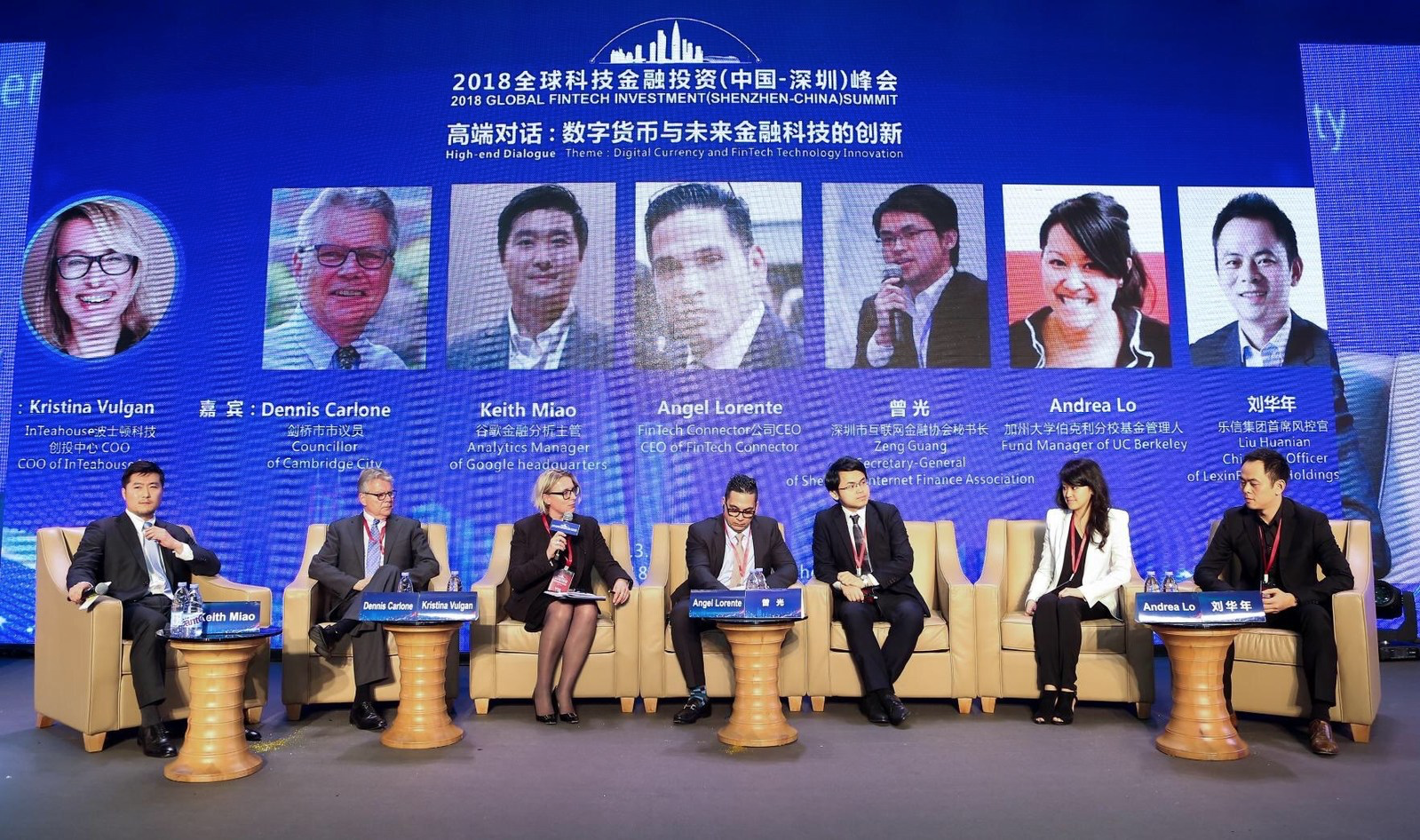
Hyuk-Jeen: You know that cliche that investors don't know what they're talking about? Well, this guy does. Ask him about semiconductors, and take a seat, cause you're going to school. He's so likable, I can almost forgive him for his skepticism of Elon Musk's motives for the future of humanity. Almost Hyuk-Jeen, almost. Elon is life #occupymars.
Shmuel: To balance out our global crew, we had Shmuel representing another small country (besides Singapore) that punches way above it's weight. Israel. Based on a long history of high-tech R&D, Israel has built a solid Fintech ecosystem on top of it's successes in cryptography and cybersecurity.
Angel: The purest American of the group rocking his signature NYC borough accent, Angel represents the crossroads of Fintech. After a long career at the heart of finance in New York, he's now connecting ecosystems of investors and entrepreneurs. The old and new coming together, eventually we'll just have Finance again with no clear lines between tech and banking. It's all tech. It's all banking. As one.
China is like the Texas of the world, everything is just bigger.
Keith: Soft-spoken and analytical, this man could only be a former economist working at Google. It just adds up. Born and raised in Canada, fluent in Mandarin, and now working on the bleeding edge of tech in Silicon Valley. Isn't that kind of the whole story of today's world?
Nigel: This man is what you would call O.G. in Fintech. Took his last company to a billion in revenues? Check. Friends in jail for regulatory mishaps? Check. Literally knows everyone in Fintech? Check. Current mission: CEO of Railsbank to facilitate API banking in just 5 lines of code. Bet against him at your own peril!
Andrea: Probably the most #millennial millennial I've ever met, she was raised in the heart of Silicon Valley, and is bilingual in Mandarin and English. Her entire career has been entrepreneurship and venture capital. I wouldn't bet against here in the game of life, and would vote her captain of my tribe in a zombie apocalypse.
The startups
After sitting on planes, trains, and automobiles for a week together, I could pitch any one of these amazing companies on stage. In fact, I tried to one occasion. So I'd like to introduce you to each of them, and I'd be happy to connect you with any of these amazing innovators that I can now call (WeChat) friends.
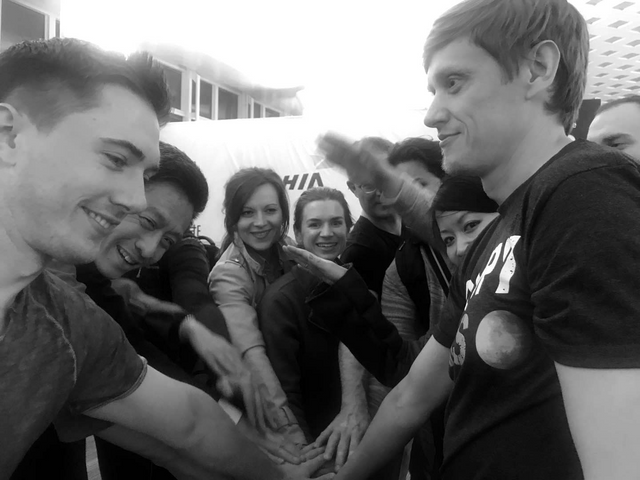
Kava - Brian, or Brain as he's known in China, will help you buy coffee at Starbucks with your Warcraft sword. Actual quote. Kava is pushing for true interoperability between islands of blockchains, much like what TCP/IP did to unlock the potential and explosive growth of the internet. He's exactly like me but younger, smarter, and better looking. My pocket-square game was stronger though, objectively.
Ezprezzo - Besides his eternal love of all things coffee and WeChat, Remy is looking to make blockchain development commonplace. His company is developing technologies that will make adoption of key blockchain technologies accessible to any developer. Besides being the clear crowd favorite, I'm pretty sure you'll see his name in the news in the next few months.
Birch - Completing our trinity of brotastic American founders, Alex "Jacbo" Cohen has created an app that squeezes every inch of rewards out of your spending habits. Birch delivers instant value to a growing base of loyal users, enabling that real Y.O.L.O. lifestyle for all you millennials. He's also the first founder I've met planning to get a tattoo of his company's logo to commemorate his next funding round. Hopefully in Comic Sans.
Riskifier - Jelena has one of the all-time great founder stories to tell. She had the idea for her company borne out of a hackathon, and decided moved to Switzerland on a dare the next day, much to the shock of her elderly grandmother. Riskifier is early in the game, but one to watch in the wealth management space for sure. Brofist to a fellow B2B'er.
FutureFuel.io - The tag team performances of Laurel and Chet on stage were the stuff of pitch legend. One of the more polished platforms of the crop, FutureFuel has an audacious and virtuous mission to "crush student debt". Laurel, delivering that line with an authentic Manhattan hair-flip, is the epitome of the fierce female founder.
Arca - The quintessential British gentleman, Charles will as naturally compliment you on your tea etiquette as he will provide institutional liquidity to real-estate indices across the UK. I sincerely hope he would approve of the eloquence of that sentence.
Veem - Our resident jokester, Alan is a payments heavyweight having cut his chops as head of China for PayPal and head of Innovation for VISA. Now he wants to liberate millions of small businesses across US and China from the chains of wire transfers. Little known fact: Veem probably has the largest-scale production operation on the blockchain today.
Exchanger - Monika thinks fast, but talks even faster. Firing Fintech lingo at 600 acronyms-per-minute to the horror of all translators, she is here to revolutionize the cost and liquidity of currency exchange between financial institutions and consumers globally. Brrr-bap.
Big Brook - The smartest person in the room by a pretty comfortable margin, as proven by scientific monologues filled with words I can't even spell enough to Google, Paul can be best summarized by his hobby of creating patents. When visiting the local particle accelerator at Dongguan, Paul asked the guide about their particle energy and neuron flux capacity. I asked for directions to the nearest toilet. Oh, he also happens to run a hedge fund that uses legitimate A.I. to predict stock market behavior around corporate earnings.
Bambu - Lastly, as repped by your's truly, your friendly neighborhood B2B robo-advisor is here to get the people of Earth saving and investing for their future. Because that seems like a smart thing to do. In case you want to retire on Mars with Elon, or whatever. Banks, hit us up for some sweet robo-investing API's yo. I also won the competition for shortest pitch at 2:48. Yes, that was a thing. Don't ask, you kind of had to be there.
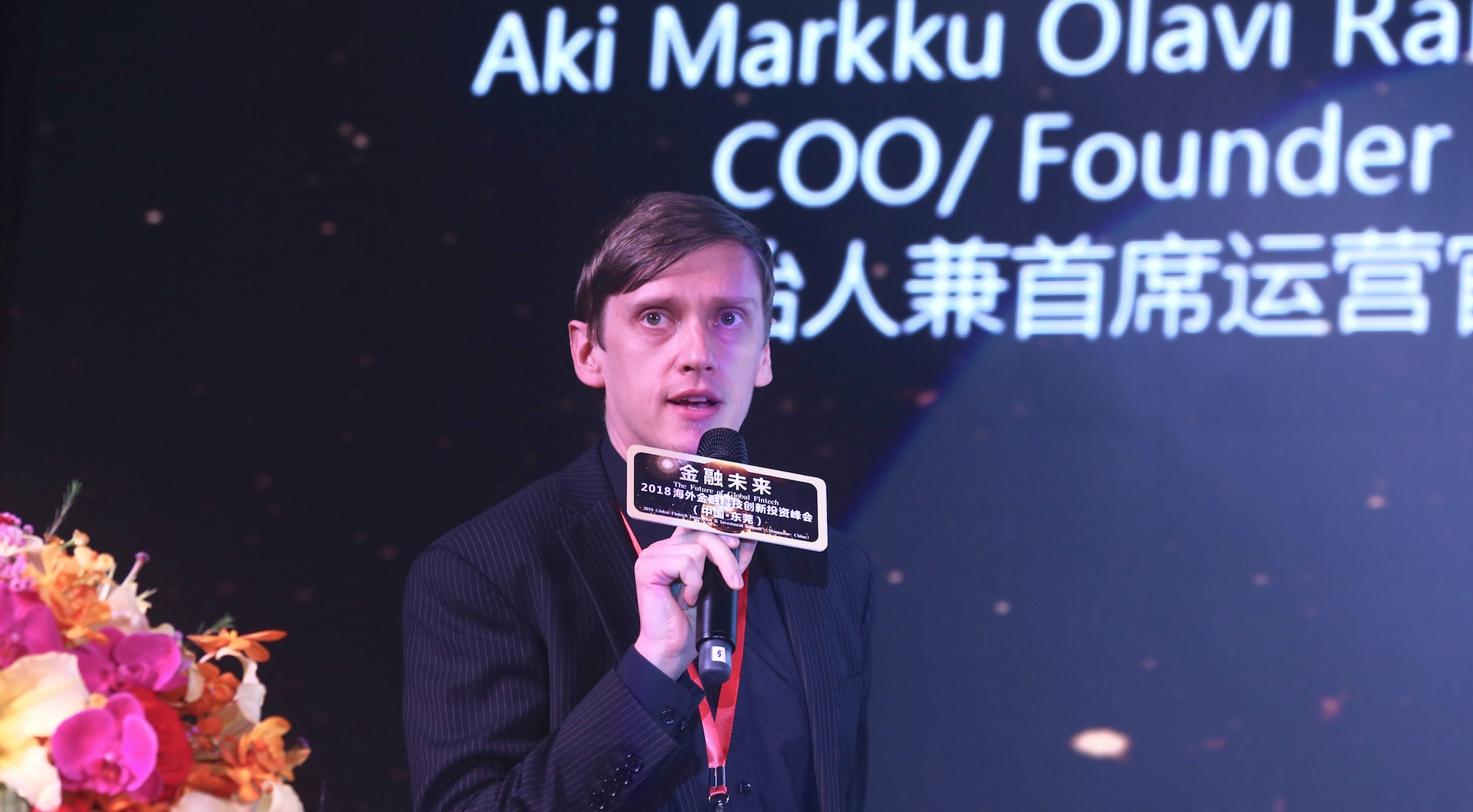
The route
So with this posse of thinkers and doers, where did we actually go?
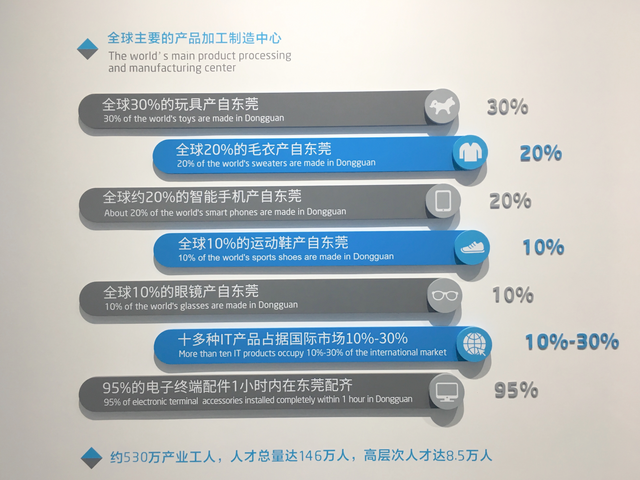
CITY #1: Dongguan - A rather surprising start to our trip. Having only been to Beijing and Shanghai, my perception of China was one of amazing progress and infrastructure, but here was Dongguan, a city built around the natural environment. The air was clean and crisp, with 70% of the city covered in trees. Right in it's center, a lake system with pristine waterfront and a thriving ecology. I went for a run in the morning to find the lake teeming with fish and birds of many kinds. And yes, they have a particle accelerator, in case you were worried about access to convenient neutron sources. Phew!
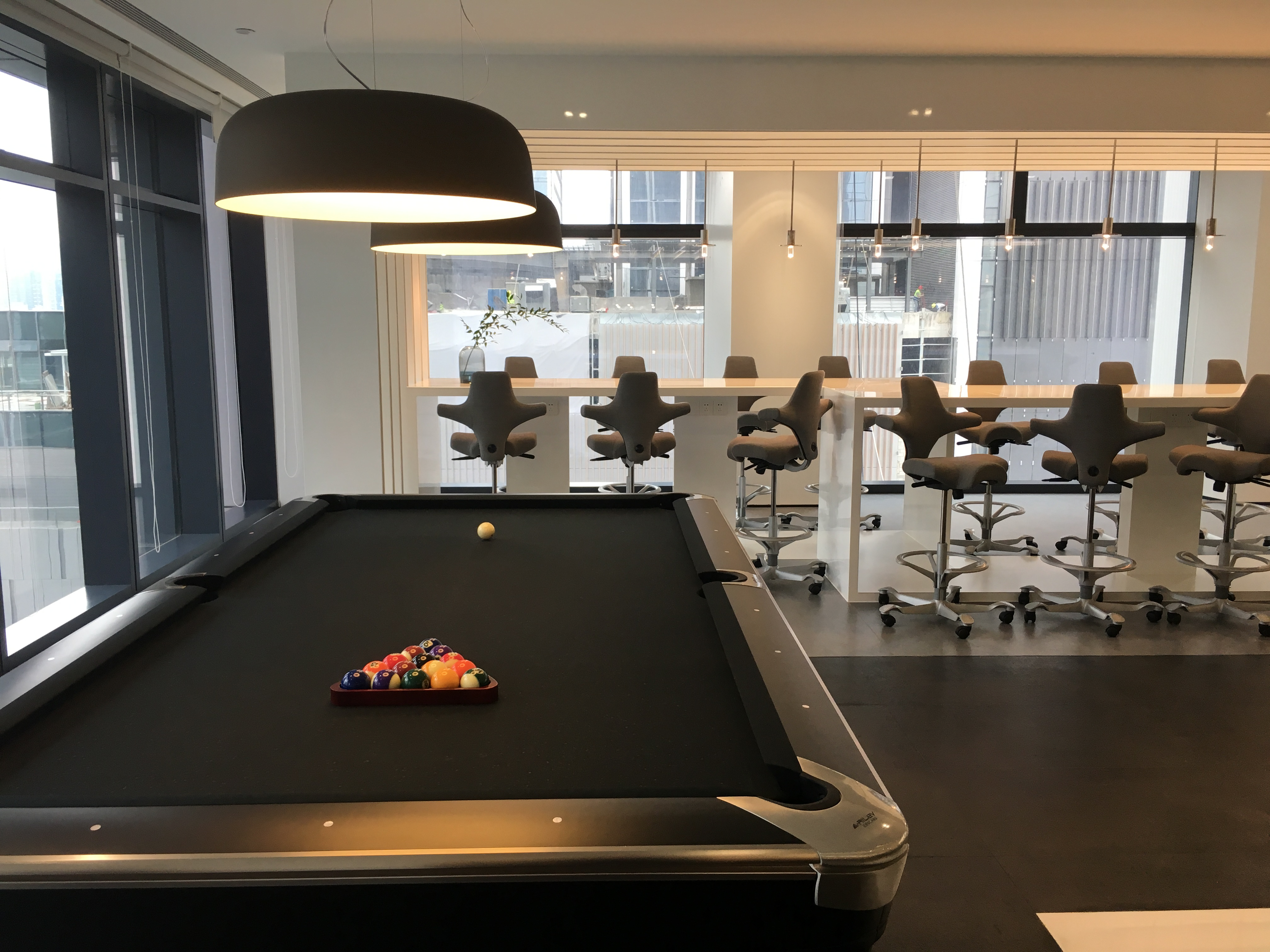
CITY #2: Shenzhen - What can I say? I had heard lots about Shenzhen being like Hong Kong, but my takeaway is almost like it's Hong Kong squared. Bigger, bolder, faster. In a country obsessed with progress and technology, Shenzhen is the national playground. The promotional video ran to a soundtrack of techno and hard rock, which accurately describes the mood of the city. Fast and unrelenting. This is where the innovators are. This is where you should be.

CITY #3: Hangzhou - Perhaps a good way to describe modern China is to say that a thriving urban metropolis of 10 million can be forgettable in between these behemoth cities. There's just too much going on in too many places, really. You could probably live your life happily in this one place making a fortune, living a full life, and contributing to society without ever leaving.
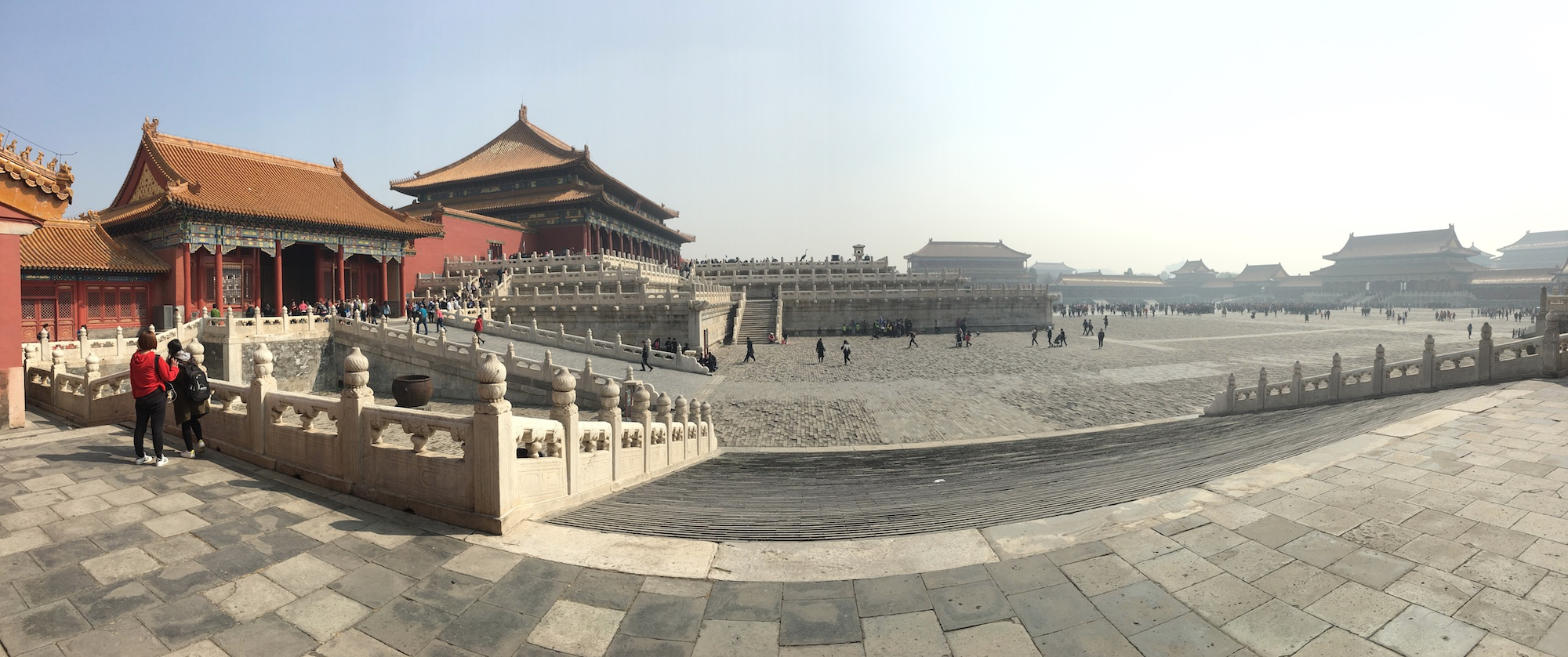
CITY #4: Beijing - Even today, Beijing is the lens to the origins of China. While many newer cities are growing faster, and being designed on blank canvases by renowned architects around dramatic cityscapes, Beijing tells you the origin story of the superhero that is modern China. It was designed by a purposeful government, in a demonstration of lasting order and global supremacy. Even the roads tell the story. Straight, wide, and majestic. Walking along the main avenue makes you feel like an ant. The hotels, malls, and government buildings are simply gigantic. Supersized. You literally feel like this is some sort of origin point not only for the middle kingdom but mankind. Walk through Tiananmen Square and the Forbidden City and you walk through centuries of human progress and history. The scale of everything just leaves you quite humble and a little speechless.
Takeaway for Fintech and China
While Shanghai remains the center of the traditional financial services industry, Shenzhen is the home of the technology banks. That's a term that isn't widely used outside China, but is frequently mentioned in promotional materials for the city of Shenzhen. You might recognize these names: Alibaba, Tencent, Baidu. Yes, all three have banking licenses in China, and all three operate out of Shenzhen. If that wasn't reason enough to declare this the Fintech capital of China, it also houses the only other stock exchange outside Shanghai.
We had the privilege to visit the Nanshan Technology Finance City a day before it's announcement and grand opening. Having visited many Fintech hubs around the world, and having been located in the self-proclaimed largest Fintech hub in the world in Lattice80 of Singapore, I was in for a bit of a shock. This wasn't a space. It was an actual city. The scale model told the story. Not just office towers and co-working spaces. Around the clock food & beverage for late night meetings. A theater for keynotes and product launches. A subway system.
It's as clear a signal as any that China intends to dominate Fintech, and its heart is Shenzhen. If you're in Fintech and haven't visited, go now before it becomes an embarrassment amongst your peers. Oh god, I probably have to take Mandarin lessons finally.
For those looking to do business in China, one angle to consider is the link between the wider Guangdong province and Hong Kong. Known as the gateway to China, Hong Kong is extremely accessible to foreign investment. Incorporating there can be done easily and efficiently online, but here's the trick. Companies incorporated in Hong Kong are allowed to operate in all of Guangdong province, including Shenzhen. So if you've put off entering China due to the apparent complexities, consider Hong Kong - still the gateway to China.
Takeaway for the future of mankind and China
Speaking with the many entrepreneurs, investors, and innovators on our trip gave me great perspective. They represented all races, all ages, across America, Europe, China and the Middle East.
Beyond Fintech, I was struck by two things.
Firstly, China seemed easy. I had thought it would be plagued with the hassles and inefficiencies you see across Southeast-asian developing economies. None to be seen. It was more like Japan. Clean, efficient, and safe. Play by the rules and the sky may not be the limit, after all.
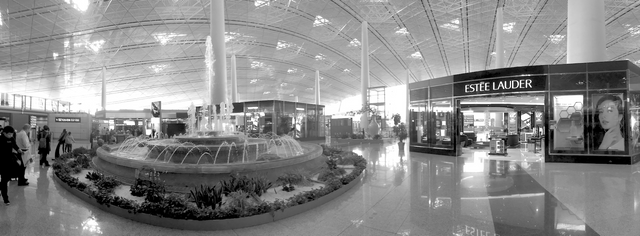
The other was a genuine sense of human progress. That the goals of China were transparent and aligned with global interests. It wasn't just about China anymore. It was about the world and our future.
China has a few advantages that are rather unique in the world. Looking at the recent years in the Western democracies, things have taken a rather disappointing trajectory after decades of unity and breaking down walls of policy and commerce. The opposing political forces of conservatives and liberals are racing to undo each others achievements, often taking turns in majority control. That means any meaningful progress is stunted. Two steps forward, one step back. Or the other way round, even?
The dream of a unified, centralized European Union seems more like a nightmare now. The economic collapse of southern European nations combined with the populistic breakout of Britain from the continent paint a bleak picture of the future prospects of the Old World. Where in all of this madness is there place for progress, science, and long-term planning?
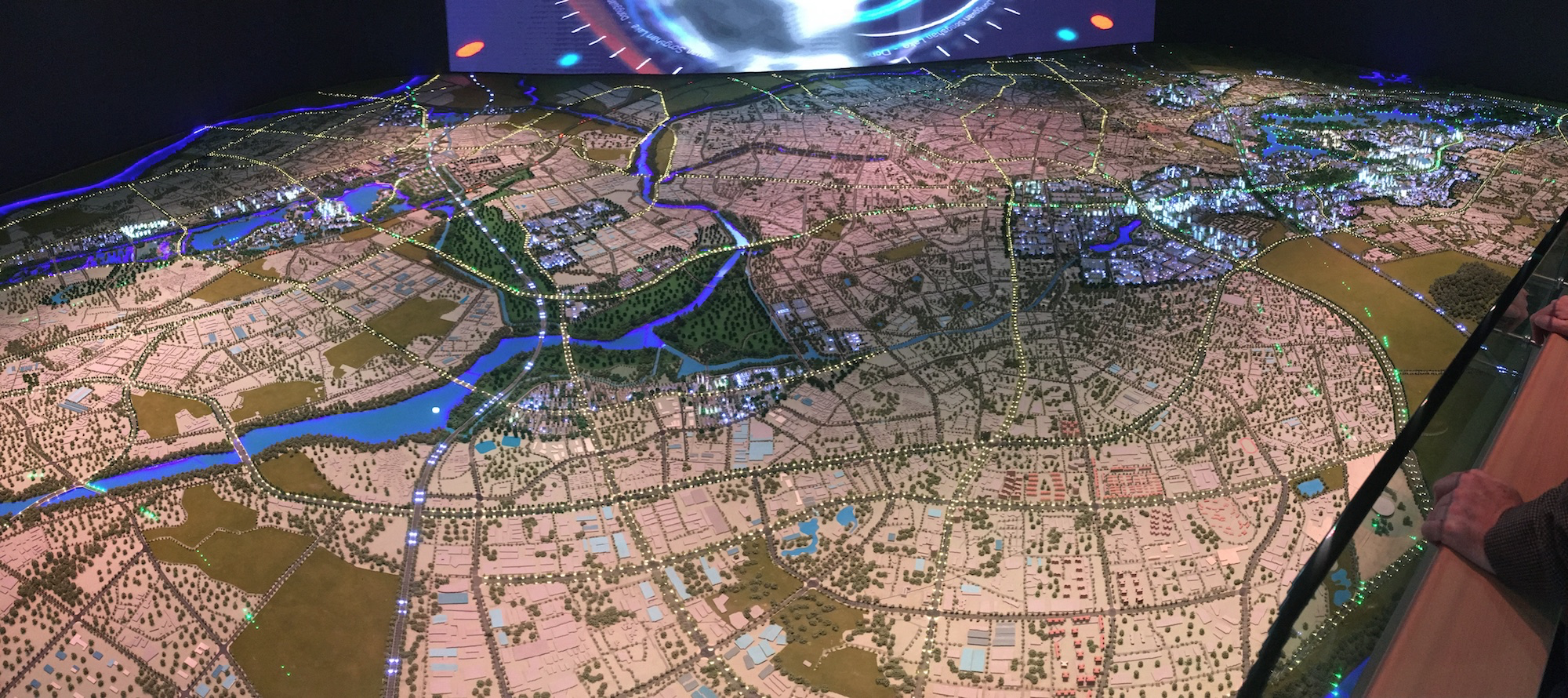
While there are certainly many areas with room for criticism and improvement, China has a singular direction as a nation. Simply, it can afford to think long-term. No need to optimize for the election cycle. Investments and allocation of national resources can be made with the foresight of decades. The conformist culture of Eastern Asian peoples result in billions of people working in unison behind the long-term vision of progress.
China will carry the torch for humankind, while the West is taking a stagnation nap.
Rather than scare me of the conflict of superpowers, this rise in the prowess of China gives me great hope. In the era of ever-shortening horizons of the Western nations, we can only expect less and less in terms of national efforts for global progress. Luckily, the private sector is showing the path forward that was previously the task of government. This can be clearly seen in the current status of cutting edge scientific pursuits in Space Exploration and Artificial Intelligence. We do however, have one last bastion of national effort: China. The largest nation can pool it's resources, ingenuity, and creativity on scales that Elon Musk, Jeff Bezos, and Mark Zuckerberg combined can only marvel at.
It's time for China to carry the torch for the rest of us.
--
